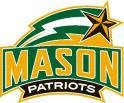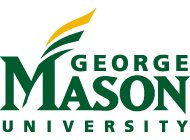Slate also offers a great profile of many of the professors and programs in the GMU Economics department:Unlike his neighbors, George Washington, Thomas Jefferson, and James Madison, founding father George Mason has rarely gotten his props from historians and the public. Until recently, the same could be said of the university bearing his name. But the advancement of Mason's basketball team to the NCAA's Final Four is only the school's latest surprise win. The GMU economics department—which didn't even award Ph.D.s until 1983—has two Nobel Prize winners on its faculty. The law school ascended to the first tier several years ago, a striking achievement for a new program that 10 years ago was being run out of an old department-store building. What's remarkable is that GMU's freewheeling basketball team and its free-market academic teams owe their successes to very similar, market-beating strategies.
GMU has excelled on the court and in the classroom by daring to be different. Its basketball team and academic programs began with the (correct) assumption that they couldn't hope to compete against the top schools in their fields—say, Harvard Law School or the Duke Blue Devils—by directly imitating their methods. GMU lacks the resources and reputation to recruit McDonald's All-Americans or Alan Dershowitzes. So instead, GMU has hunted for inefficiencies in its markets. Coach Jim Larranaga follows the Moneyball model of recruitment: hunting for the undervalued players—the ones who everyone else thought were too short, too thin, or too fat—and then building them into a team. In its astonishing defeat of UConn, GMU's players were giving away 4 inches at nearly every position.
This is also the idea behind GMU's free-market-oriented economics department. The department got started with a heretical premise: The academic market is inefficient, so how can we exploit it? GMU knew it couldn't afford to be a first-class MIT and didn't want to be a second-class MIT, so successive chairs of the department, backed by entrepreneurial university presidents George Johnson and Alan Merten, looked for unexploited opportunities.
James Buchanan, GMU's first Nobel Prize winner, has never had an Ivy League position and indeed he has never taught above the Mason-Dixon Line. Gordon Tullock, a potential future Nobelist, has no degree in economics and took only one class in the subject. Vernon Smith, who moved his team from the University of Arizona (again, no Harvard) to GMU in 2001, had to fight to get people to treat experimental economics as more than a cute parlor game.
From the 1960s into the 1980s, a small university such as GMU could hire conservative and free-market thinkers of true genius for the same kinds of reasons that, in the mid-1960s, a middling school like Texas Western University could recruit some of the best basketball players in the nation, so long as they were black, and win the 1966 NCAA championship. Conservative and free-market economists were so undervalued that GMU could afford the best of them.GMU remains an underdog in both basketball and economics. But Coach Larranaga has a plan to succeed in the long term and so do GMU's professors. Click here to read about how GMU is seeking out different new kinds of undiscovered geniuses.
The odds are still against GMU on the court and in classrooms. Neither in basketball nor economics is GMU a top-10 school. We cannot match the endowment of a Harvard or Stanford. Building with the odds stacked against you is difficult, but GMU proves it can be done. Look for undervalued assets, eschew political correctness, and take the long view. But don't try to imitate Mason. The opportunities Coach Larranaga found will dry up. A small economics department today is more likely to succeed by assembling a quality group of socialists than free-marketeers. Bring it on! We're ready to play.
See my own thoughts about why I love GMU’s PhD program here and here.At GMU we practice Entrepeneurial Economics and we still think there are unexploited profits and oddball geniuses to be found. You can't get much stranger or more brilliant than Robin Hanson, one of the architects of the Defense Department's short-lived "terror futures market." Betting markets are now used to forecast elections and they are starting to gain a foothold in the corporate world. Hanson wants to go further and have policies decided by contests in betting markets. (He calls it "futarchy.") He also has contracted to have his head frozen upon his "death," and has good arguments for why this makes sense at market probabilities and prices.
Larry Iannaccone's field of expertise is religion. Larry asks, Is a free market in religion good for religion? Kevin McCabe and his co-authors have the first published paper about running brain scans on people while they make economic decisions. Neuroeconomics, as it is called, is now a major trend in the profession. How many economists are as comfortable talking about Michel Foucault, James Joyce, or Cuban artist Tomas Sanchez as they are about Milton Friedman? Tyler Cowen is, and in a series of books—the latest being Good and Plenty: The Creative Successes of American Arts Funding—Cowen has challenged economists to think about art and culture—and aesthetes to think about economics. Other economists at GMU are pushing the boundaries of development economics, studying the politics of rational irrationality, and redesigning electricity markets.
The outsider status of both the GMU economics department and the basketball team contributes to their styles of play. We like to have fun, which is one reason that GMU is well-known outside of academia. Marginal Revolution, Tyler Cowen and Alex Tabarrok's daily blog, is a widely read source of economic insights. Other faculty blogs include Café Hayek, The Austrian Economists, and EconLog. In old school media, Walter Williams is a nationally syndicated columnist and well-known radio personality and Russ Roberts is the author of an economic romance novel (really!).
Visit our department’s webpage here.
PROUD TO BE A PATRIOT -- ON AND OFF THE COURT!!!

Hattip to Marginal Revolution.

No comments:
Post a Comment